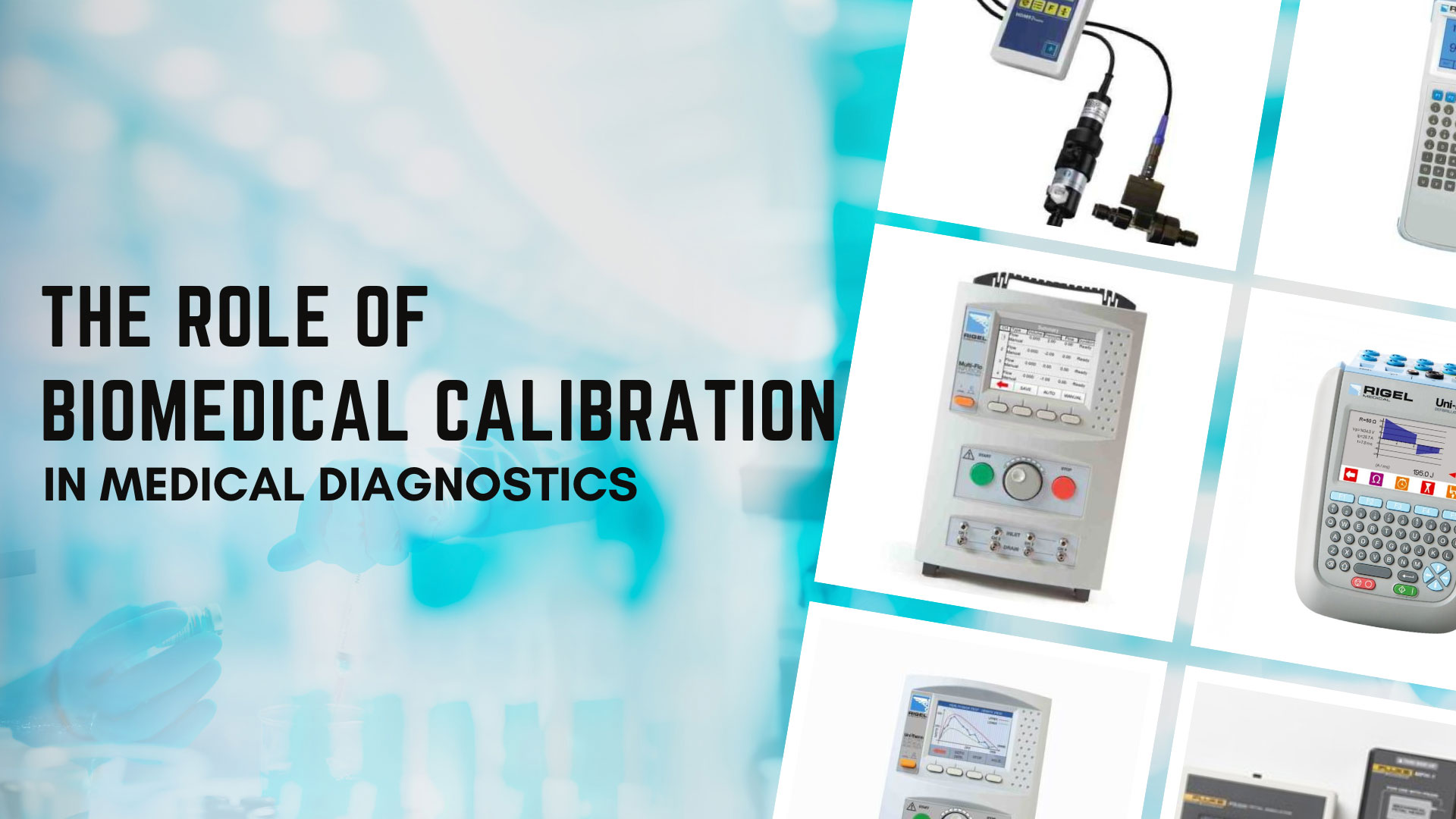The Role of Biomedical Calibration in Medical Diagnostics
Biomedical calibration is a critical process in healthcare that ensures medical devices operate accurately and reliably. As the foundation for effective diagnosis and treatment, calibrated devices, such as those tested with a vital sign simulator or infusion pump analyzer, play a vital role in patient safety.
Biomedical calibration is one of the essential components of modern healthcare. It directly helps in the increased safety of patients because proper medical equipment provides credible and trustworthy measurements. Continuous monitoring, periodic calibration with devices like the fetal simulator, and standard maintenance all help ensure biomedical integrity in any clinical setting.
Importance of Biomedical Calibration in Healthcare
Accurate measurements from medical instruments such as blood pressure monitors, glucose meters, and imaging devices are significant factors in making informed clinical decisions. Calibration services thus reduce risks concerning inaccuracy in readings that may lead to misinformation, inappropriate management, and poor patient outcomes. Some of these tools include the dialysis reference meter and the electrosurgical analyzer.
Key Biomedical Instruments and Their Calibration
- Electrocardiograms (ECGs or EKGs):
Purpose: Monitor heart activity by measuring electrical signals.
Usage: Detect arrhythmias, ischemia, and other cardiac conditions.
- Pulse Oximeters:
Purpose: Measure blood oxygen saturation levels and pulse rate.
Usage: Commonly used in both hospital and home settings, especially for patients with respiratory conditions.
- Temperature Monitors:
Types: Digital thermometers, infrared thermometers, and tympanic thermometers.
Purpose: Measure body temperature.
Usage: Important for detecting fever or hypothermia.
- Intravenous (IV) Infusion Pumps:
Purpose: Deliver precise amounts of fluids, medications, or nutrients directly into a patient’s bloodstream.
Usage: Commonly used in hospitals for various treatments.
Calibration of these pumps often involves specialized tools like the infusion pump analyzer.
- Cardiac Monitors:
Purpose: Continuously monitor heart rate, rhythm, and other cardiac parameters.
Usage: Frequently used in intensive care units (ICUs) and during surgery.
Roots Metrology's Biomedical Calibration Services?
Roots Metrology is known for providing comprehensive Calibration Services, including biomedical calibration. Here are some key aspects:
- Range of Services:
Roots Metrology typically offers calibration for various biomedical devices, such as infusion pumps, patient monitors, and laboratory instruments. Their Calibration Services aim to ensure these devices operate accurately and reliably, using advanced tools like the electrical safety analyser and vital sign simulator.
- Standards Compliance:
Roots Metrology & Testing Laboratory adheres to national and international standards, ensuring that their calibration processes meet regulatory requirements and industry best practices.
- Accreditation:
Roots Metrology holds accreditation certification on ISO/IEC 17025, which indicates competence in testing and calibration.
- Expertise:
The team at Roots Metrology includes skilled technicians with expertise in biomedical instrumentation, ensuring precise and reliable calibration, often involving specialized devices such as the fetal simulator and dialysis reference meter.
- Customer Support:
Ongoing support and maintenance services are usually available, helping clients with any calibration-related inquiries or issues.
Roots Metrology specializes in Calibration Services, using advanced analyzers like electrical safety analyzers, infusion pump analyzers, and fetal simulators, ensuring your biomedical devices meet the highest standards.
